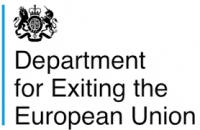The Committee on Exiting the European Union Give Thumbs Down to Prime Minister May's Deal
Sunday 09 December, 2018 Written by Simon Collyer
The Committee on Exiting the European Union publishes its report on the Government’s EU Withdrawal Agreement and Political Declaration. The Report – agreed unanimously – says that the Prime Minister’s deal fails to offer sufficient clarity or certainty for the future of the UK.
- Read the conclusions and recommendation [HTML]
- Read the full report: The progress of the UK's negotiations on EU withdrawal - The Withdrawal Agreement and Political Declaration [HTML]
Uncertainty still remains over future UK-EU relationship
After 20 months of negotiations, we only know the terms of the UK's departure but not the nature of the future relationship with the EU. The Prime Minister’s deal fails to offer sufficient clarity or certainty about the future.
The Political Declaration is neither detailed nor substantive. It only sets out a series of options, and people and businesses will continue to face significant uncertainty about the terms of our trade with the EU after the transitional period ends.
There is insufficient detail in the Political Declaration for us to judge whether the fifteen tests the Committee previously set have been met, except for the one relating to tariffs (“In respect of trade in goods, there must be no tariffs on trade between the UK and the EU 27”). What is clear from the Political Declaration is that the extent of our access to EU markets will depend on the degree to which we adhere to its rules.
Long-term, realistic proposals needed to maintain open border
There are no realistic, long-term proposals from the Government to reconcile maintaining an open border on the island of Ireland with leaving the Single Market and Customs Union.
The backstop will be the default relationship between the UK and the EU after the end of the transitional period, unless and until a future economic relationship is agreed that can maintain an open Northern Ireland/Ireland border and protect all parts of the Belfast (Good Friday) Agreement.
Activating the backstop would result in immediate barriers to UK-EU trade in goods and services. By July 2020 if the future relationship is not in place, or one/two years later if the transition/implementation period is extended, the UK could face the threat of significant economic disruption which would reduce its leverage in the negotiations.
Choices must be made on following EU rules
The proposals put forward by the Government to maintain both frictionless trade and an open border – the ‘Chequers’ proposals – have been rejected by the EU as unacceptable.
A looser CETA-style free trade agreement with the EU is not seen as a viable option as it would not ensure the type of friction-free trade with the EU that many UK companies with just-in-time supply chains need.
Negotiations will be further complicated, and could take significantly longer, because the Government has yet to set out clear objectives for the future relationship that are realistic, workable and have the support of Parliament. And each of the 27 individual EU member states, their national and where applicable regional Parliaments, will be able to exercise a veto on the overall outcome.
If the Government’s main priority is to secure EU-UK trade that is as frictionless as possible, it must decide how far it is willing to follow EU rules. This is not a choice the Government has so far been willing to make.
Agreement on security co-operation and citizens' rights urgently required
It is imperative that objectives for future EU-UK internal and external security relationships are settled as early as possible.
Agreement on outstanding citizens’ rights issues should be prioritised in the future negotiations to give clarity and certainty to all those affected.
The overall level of EU-UK cooperation will be less than it is now, as will be the UK's influence on the strategic direction of EU foreign and security policy.
Future relationship negotiations will continue beyond March 2019
It would be unacceptable for the Government not to publish the White Paper on immigration before the vote on 11 December 2018.
Because of the large number of issues crucial to the future of the EU-UK relationship which are still to be decided, the Brexit process will not be concluded by March 2019. Indeed, negotiations on the future relationship are likely to go on for a number of years.
There is probably no majority in Parliament for leaving with no deal and as Parliament has now given itself the opportunity to consider and vote on other options, these may include the extension of Article 50.
Chair's comment

Image: Hilary Benn MP
The Chair of the Committee, Hilary Benn MP, commented:
“It is because the Government has refused to face up to the hard choices confronting us that this deal would represent a huge step into the unknown.
The Political Declaration falls far short of the ‘detailed and substantive’ document promised by former Secretaries of State and by the EU Chief Negotiator, Michel Barnier. It does not give the British people or our businesses the clarity and the certainty they need about our future trading relationship with the EU in five or ten years’ time. And with these negotiations having not even having started yet, this could take years to sort out.
It is now time for colleagues to decide on the Prime Minister’s deal. Throughout this process, the Select Committee has always argued for Parliament to be given a full and proper role, and a vote on what has been negotiated. The opportunity to do that is now before us, and I hope this report, with its detailed analysis of the withdrawal agreement and the political declaration, will help members on all sides of the House to make their d
Leave a comment
Make sure you enter all the required information, indicated by an asterisk (*). HTML code is not allowed.
Join
FREE
Here










